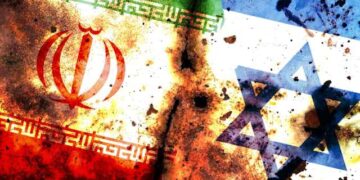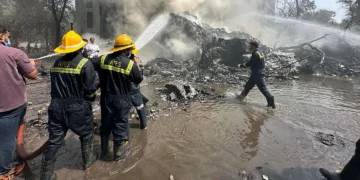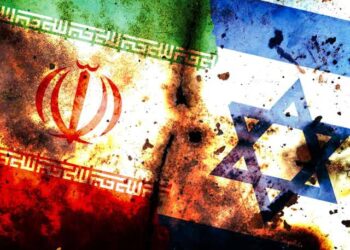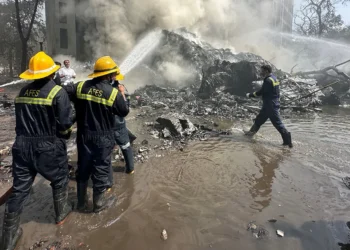The recent Pahalgam terror attack has escalated india pakistan tensions, drawing significant international attention. The attack, which targeted a group of pilgrims, resulted in multiple casualties and injuries, sparking widespread outrage across India.

In the wake of this incident, India has taken a firm stance, vowing to enhance its national security india2025 strategies. The government has initiated a comprehensive review of its security protocols, aiming to bolster its defenses against future attacks.
The indo-pak conflict has once again come to the forefront, with the international community closely monitoring the developments. The situation remains volatile, with both nations engaging in diplomatic efforts to de-escalate the tensions.
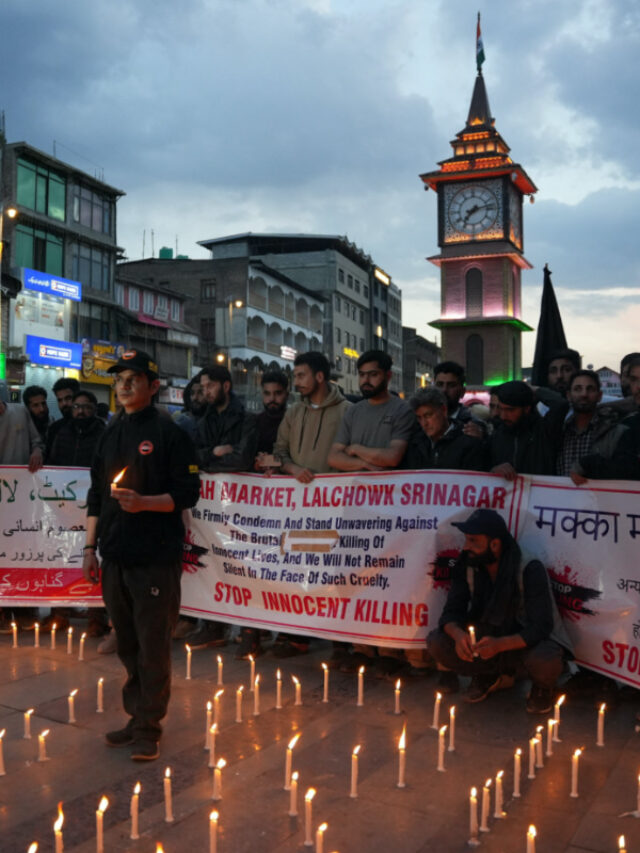
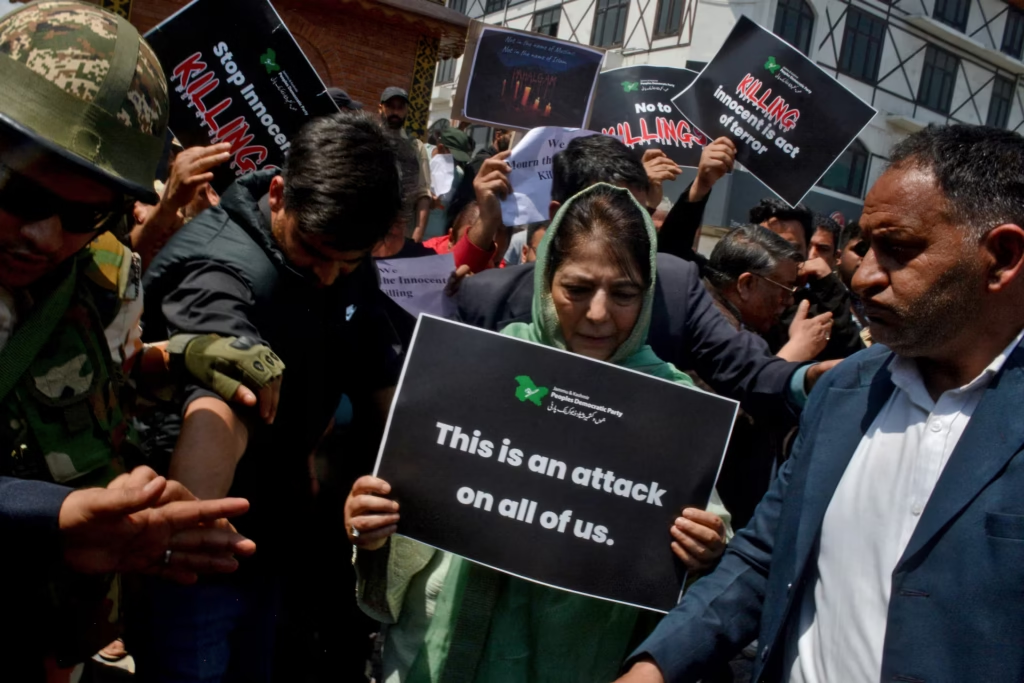
Key Takeaways
- The Pahalgam terror attack has heightened tensions between India and Pakistan.
- India is reviewing and strengthening its national security measures.
- The international community is closely watching the Indo-Pak conflict.
- Diplomatic efforts are underway to reduce the escalating tensions.
- The attack has resulted in significant casualties and injuries among pilgrims.
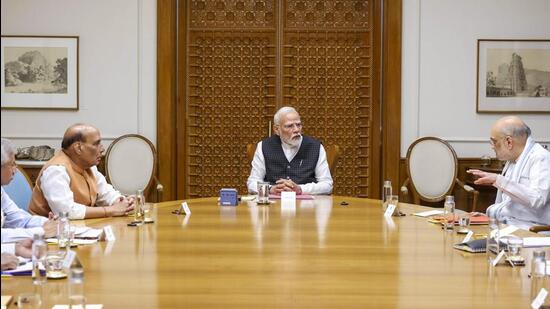
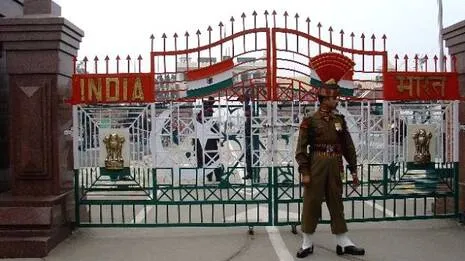
The Pahalgam Terror Attack: A Detailed Account
The Pahalgam terror attack that occurred in 2025 sent shockwaves across the globe, highlighting the persistent threat of terrorism in the region. This attack was a stark reminder of the ongoing security challenges faced by the Indian government in Jammu and Kashmir.
Timeline of the Attack
The attack unfolded in the early hours of the morning, catching locals and tourists off guard. Terrorists opened fire on a tourist bus, leading to a intense confrontation with security forces.
Casualties and Damage Assessment
The attack resulted in significant casualties, including both civilians and security personnel. The exact numbers were still being assessed, but initial reports indicated a severe impact.
| Category | Number |
|---|---|
| Civilians | 20 |
| Security Personnel | 10 |
| Terrorists | 5 |
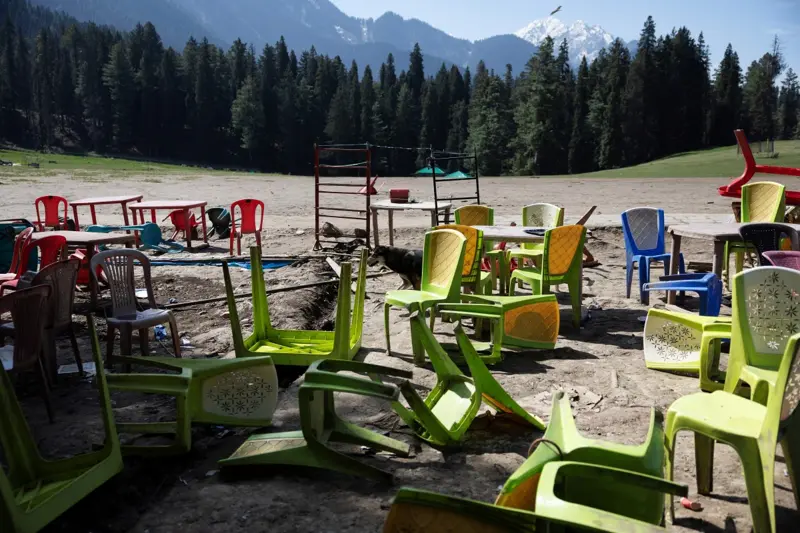
Initial Reports from Ground Zero
Initial reports from the ground indicated widespread destruction and chaos. Eyewitnesses described the scene as “horrific.”
Eyewitness Testimonies
“I was near the bus when the firing started. It was chaotic, and people were running in all directions.” – Local Witness
The response to the pahalgam terror attack2025 was swift, with security forces deploying to the area to conduct rescue and relief operations. The incident highlighted the need for continued vigilance against terror attacks in jammu and kashmir.
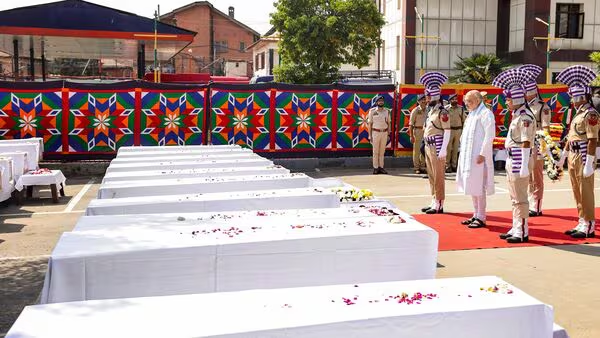
Immediate Response from Indian Security Forces
In response to the Pahalgam terror attack, Indian security forces launched a multi-pronged operation to rescue those affected and apprehend the perpetrators. This swift action underscored the Indian government’s commitment to counter-terrorism.
Rescue and Relief Operations
Indian security forces quickly initiated rescue operations, prioritizing the safety of civilians and providing medical aid to the injured. Their efforts were crucial in the immediate aftermath of the attack.
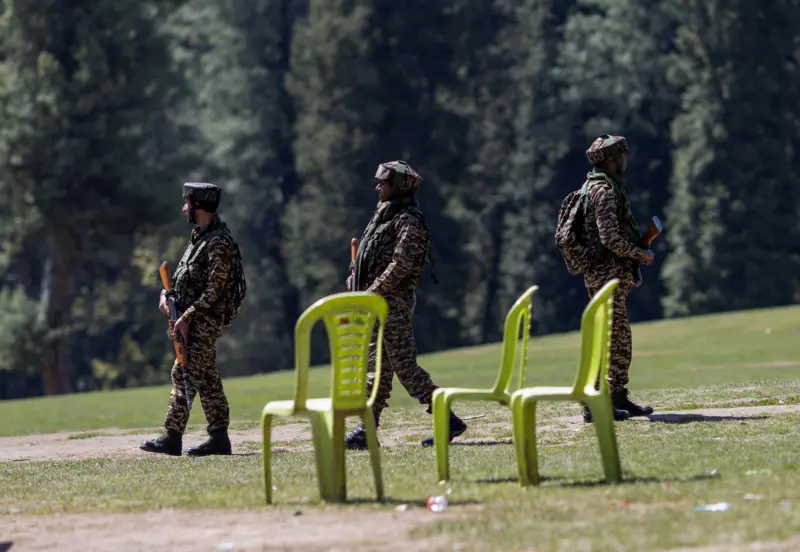
Security Lockdown in the Region
A security lockdown was implemented in the region to prevent further attacks and ensure the perpetrators did not escape. This measure was part of the India’s broader counter-terrorism strategy.
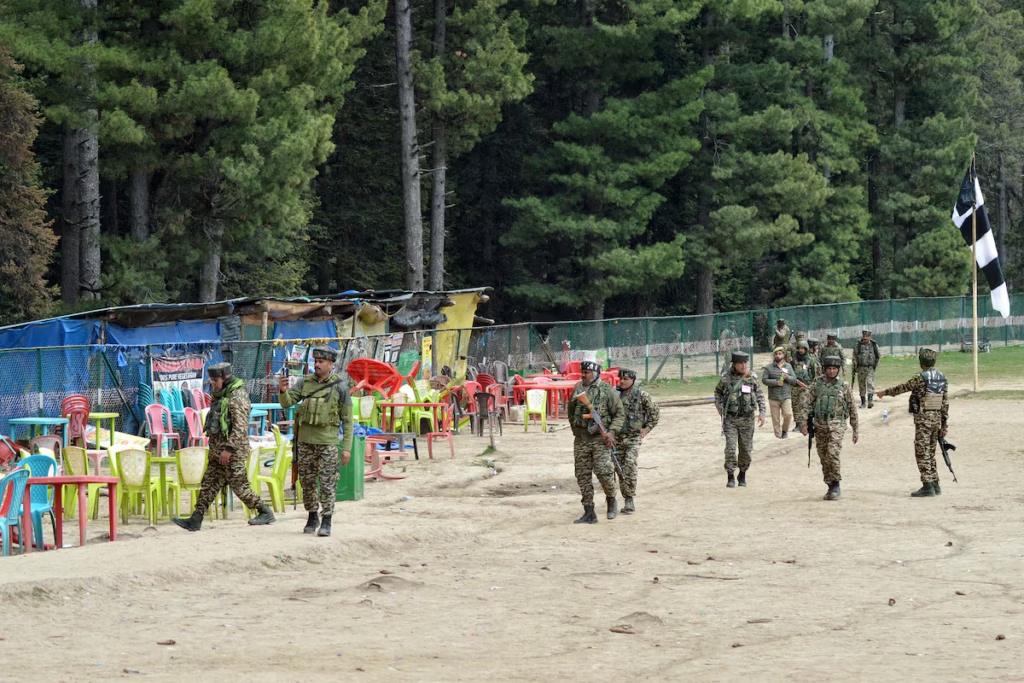
Manhunt for Perpetrators
A comprehensive manhunt was launched to identify and apprehend those responsible for the Pahalgam terror attack. Indian security forces worked tirelessly to gather intelligence and track down the perpetrators.
Human Impact: Victims and Affected Communities
The Pahalgam terror attack has left an indelible mark on the families of the victims and the community at large. The tragedy has not only claimed lives but also left many with physical and emotional scars.
Profiles of the Victims
The victims of the Pahalgam attack were primarily tourists and locals who were going about their daily lives. Their stories are a poignant reminder of the human cost of terrorism. For instance, one of the victims was a young adventure enthusiast who had traveled to Pahalgam to experience its natural beauty.
Community Response and Solidarity
In the face of such adversity, the community has come together to show solidarity with the victims’ families. Local leaders and organizations have been actively involved in providing support, from organizing blood donation camps to offering emotional support to those affected.
Support Measures for Affected Families
The government and various organizations have pledged to provide comprehensive support to the families of the victims. This includes financial assistance, medical aid, and counseling services. Efforts are also being made to ensure that the affected families receive the necessary support to rebuild their lives.
For the latest updates on the Pahalgam attack and the ongoing indo-pak conflict, stay tuned to credible news sources.
Evidence Linking the Attack to Pakistan-Based Terror Groups
Investigations into the Pahalgam terror attack have revealed substantial evidence connecting it to Pakistan-based terror groups. This evidence is multifaceted, involving intelligence reports, forensic analysis, and claims made by the terror groups themselves.

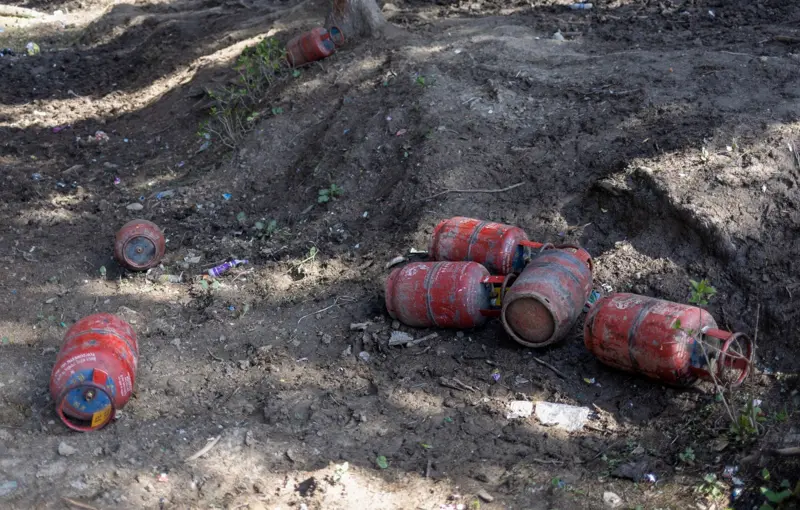
Intelligence Reports and Findings
Intelligence agencies have reported that the attack was planned and coordinated by entities based in Pakistan. These reports are based on intercepted communications and other intelligence gathering methods. The intelligence findings have been crucial in establishing a direct link between the attack and Pakistan-based terror groups.
Forensic Evidence from the Attack Site
Forensic analysis of the attack site has yielded significant evidence, including explosives and weapons, which have been traced back to known terror groups operating from Pakistan. forensic evidence supports the intelligence reports, further solidifying the connection to Pakistan-based groups.
Terror Group Claims and Communications
The terror groups responsible for the Pahalgam attack have claimed responsibility through various channels, including social media and encrypted messaging apps. These claims have been corroborated by intelligence agencies, providing a clear indication of the groups’ involvement. The claims and communications from these groups have been a key factor in understanding the extent of their involvement.
The cumulative evidence from intelligence reports, forensic analysis, and terror group claims conclusively links the Pahalgam terror attack to Pakistan-based terror groups, highlighting the need for sustained counter-terrorism efforts in the region.
India Responds Strongly to Pahalgam Terror Attack: Strategic Measures Against Pakistan
India’s response to the Pahalgam terror attack has been robust, with significant strategic measures taken against Pakistan. The Indian government has adopted a multi-faceted approach to address the threat posed by Pakistan-based terror groups.
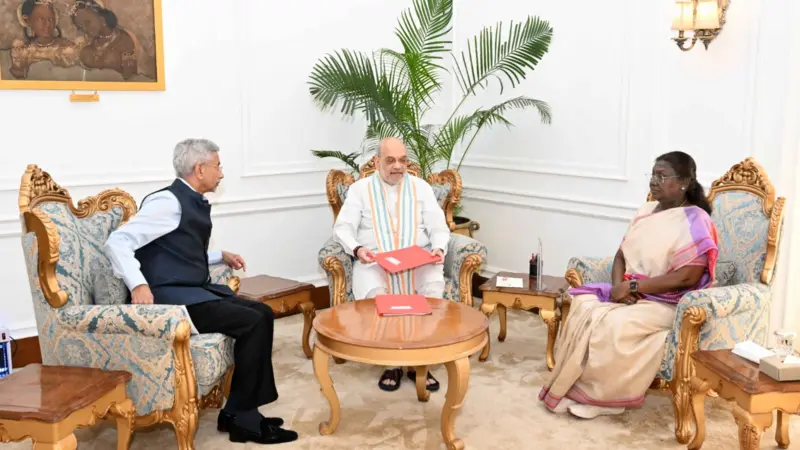
Official Statements from the Prime Minister
The Prime Minister of India has made strong condemnations of the Pahalgam terror attack, emphasizing the government’s commitment to taking decisive action against terrorism. In a national address, the Prime Minister outlined the government’s resolve to enhance national security and counter terrorist threats effectively.
Emergency Cabinet Meeting Outcomes
An emergency cabinet meeting was convened to discuss the Pahalgam terror attack and formulate a response. Key outcomes included:
- Enhancing intelligence gathering and surveillance along the Line of Control
- Strengthening counter-terrorism operations in Jammu and Kashmir
- Reviewing and revising national security protocols to prevent future attacks
National Security Strategy Revision for 2025
In light of the Pahalgam terror attack, the Indian government is revising its National Security Strategy for 2025. This revision aims to address emerging threats and bolster the country’s defenses. Key aspects of the revised strategy include:
- Integration of advanced technologies for surveillance and intelligence gathering
- Enhanced collaboration with international partners to combat terrorism
- Strengthening of domestic security infrastructure and protocols
These measures underscore India’s commitment to maintaining national security and responding effectively to terrorist threats, particularly those emanating from Pakistan.
Advanced Counter-Terrorism Measures Deployed
The Indian government has bolstered its counter-terrorism capabilities with cutting-edge technology and strategic operations. In the wake of the Pahalgam terror attack, these measures are crucial in enhancing national security and deterring future attacks.
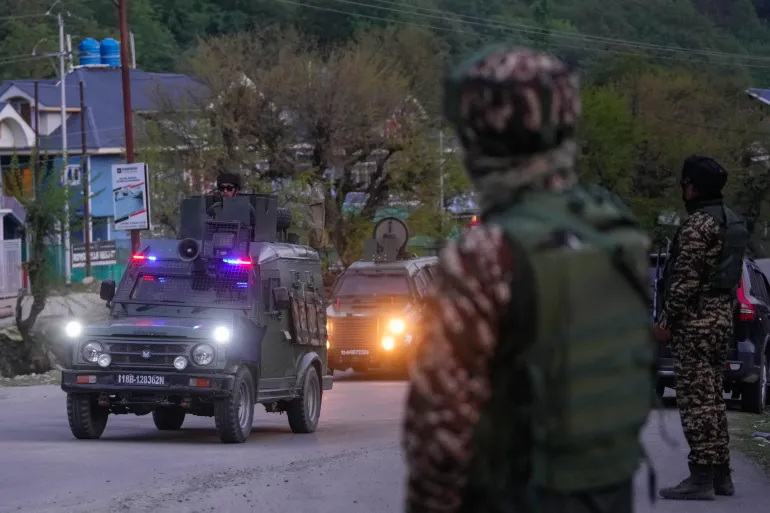
New Technology and Surveillance Systems
India has introduced state-of-the-art surveillance systems, including advanced CCTV cameras and drones, to monitor sensitive areas. These technologies enable real-time monitoring and quicker response times.
Special Forces Operations
Special forces have been deployed to conduct targeted operations against terror groups. These operations are designed to disrupt and dismantle terrorist networks.
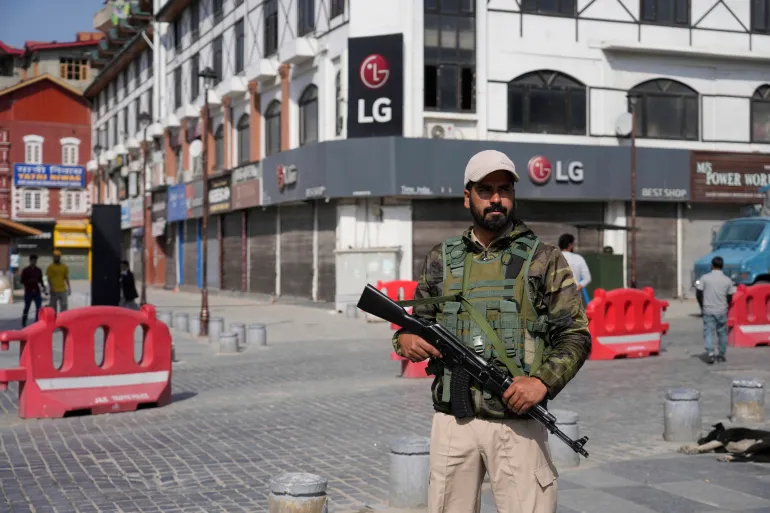
Intelligence Network Enhancement
The intelligence network has been strengthened through improved inter-agency coordination and the use of advanced data analytics. This enhancement aids in predicting and preventing terror activities.
These measures are part of India’s comprehensive strategy to counter terrorism effectively.
| Measure | Description | Impact |
|---|---|---|
| Surveillance Systems | Advanced CCTV and drones for real-time monitoring | Enhanced situational awareness |
| Special Forces | Targeted operations against terror groups | Disruption of terrorist networks |
| Intelligence Enhancement | Improved inter-agency coordination and data analytics | Better prediction and prevention of terror activities |
Diplomatic Offensive: India’s International Campaign
In the wake of the Pahalgam terror attack, India has launched a robust diplomatic offensive to garner international support against Pakistan. This campaign aims to isolate Pakistan on the global stage and build a coalition against terrorism.
United Nations Security Council Briefing
India’s diplomatic efforts began with a briefing at the United Nations Security Council, where it presented evidence linking the Pahalgam attack to Pakistan-based terror groups. As UN Ambassador emphasized, “The international community must take a firm stance against terrorism.”
Bilateral Discussions with Major Powers
India has engaged in intense bilateral discussions with major powers, including the United States, Russia, and China. These discussions have focused on sharing intelligence and coordinating efforts to combat terrorism. As a senior official noted, “We are working closely with our international partners to ensure that those responsible for the Pahalgam attack are held accountable.”
Global Counter-Terrorism Partnerships
India has also been strengthening its global counter-terrorism partnerships. This includes collaborating with countries to share best practices, enhance surveillance, and disrupt terror financing networks. The Global Counter-Terrorism Forum has been a key platform for these efforts.
Through these diplomatic efforts, India aims to create a unified international response to the Pahalgam terror attack and to pressure Pakistan into taking concrete actions against terror groups operating from its soil.
Military Preparedness and Border Security Enhancement
In response to the Pahalgam terror attack, India has significantly bolstered its military preparedness and border security measures. This strategic move aims to deter future terrorist activities and enhance national security.
Armed Forces Alert Status
The Indian Armed Forces have been placed on high alert, with a significant increase in surveillance and patrol operations along the Line of Control (LoC). This heightened state of readiness is designed to prevent any potential infiltration attempts by terrorist groups.
New Deployments Along the Line of Control
Additional troops have been deployed along the LoC to strengthen India’s defensive capabilities. These deployments are part of a broader strategy to enhance border security and respond effectively to any future threats.
Advanced Surveillance Technology Implementation
India is also implementing advanced surveillance technologies, including drones and sensor-based systems, to monitor the border regions more effectively. This technological upgrade is expected to significantly improve the detection and deterrence of terrorist activities.
These enhancements in military preparedness and border security are crucial steps in India’s efforts to counter terrorism and ensure national security in the region, particularly in light of the ongoing indo-pak conflict latest developments.
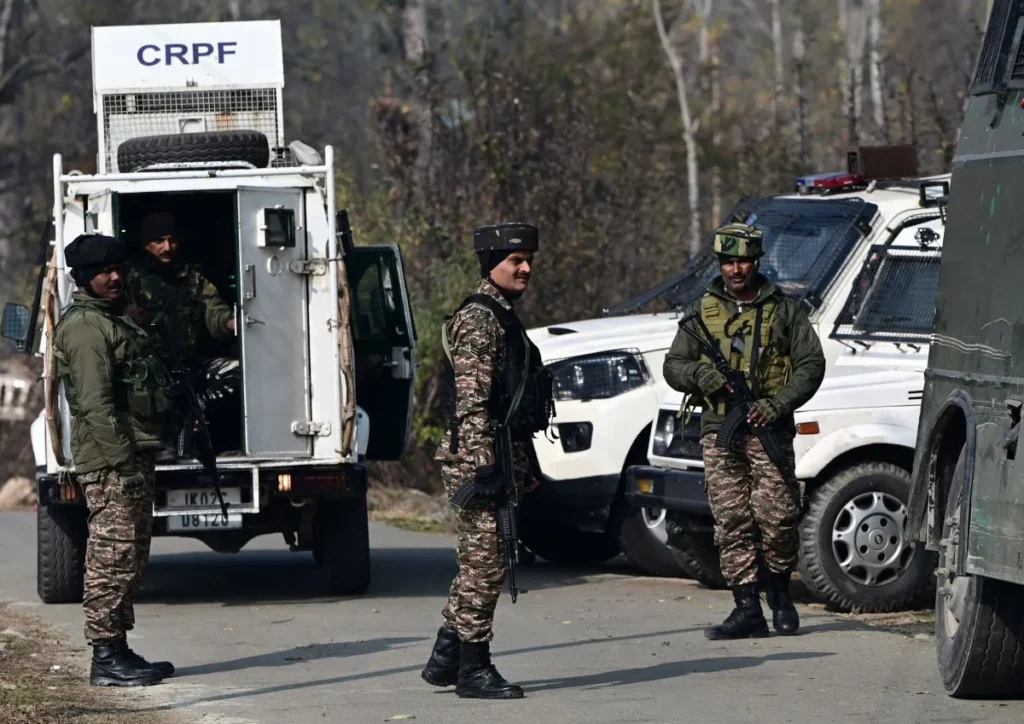
Economic Sanctions and Trade Restrictions Against Pakistan
India’s strong response to the Pahalgam terror attack includes a comprehensive package of economic sanctions and trade restrictions against Pakistan. This decisive action aims to pressure Pakistan into taking concrete steps against terror groups operating from its soil.
Revocation of Most Favored Nation Status
One of the significant measures taken by India is the revocation of Pakistan’s Most Favored Nation (MFN) status. This move has far-reaching implications for bilateral trade between the two countries. The MFN status, which was granted to Pakistan in 1996, symbolized India’s commitment to enhancing trade relations. However, following the Pahalgam attack, India decided to revoke this status, thereby increasing tariffs on Pakistani goods.
Impact on Cross-Border Trade
The imposition of economic sanctions and trade restrictions has significantly impacted cross-border trade. Trade between India and Pakistan has dwindled, affecting various sectors, including textiles, chemicals, and agricultural products. The increased tariffs and non-tariff barriers have made it challenging for Pakistani exporters to access the Indian market, leading to a decline in bilateral trade volumes.
Financial Action Task Force Implications
The Pahalgam terror attack has also drawn attention from the Financial Action Task Force (FATF), an inter-governmental body that sets standards for combating money laundering and terror financing. Pakistan’s failure to address terror financing has led to its gray listing by the FATF. India’s diplomatic efforts have been crucial in highlighting Pakistan’s shortcomings in this regard, further isolating Pakistan internationally.
The economic sanctions and trade restrictions imposed by India are part of a broader strategy to combat terrorism and ensure that Pakistan takes tangible actions against terror groups. These measures are expected to have a lasting impact on the economic and political dynamics between the two nations.
Pakistan’s Response and Counter-Allegations
Pakistan’s reaction to the Pahalgam terror attack has been marked by official denials and diplomatic counter-maneuvers. This response is part of a broader strategy to counter India’s allegations and manage internal political dynamics.
Official Denials from Islamabad
The Pakistani government has vehemently denied any involvement in the Pahalgam terror attack, labeling India’s allegations as baseless. This denial is consistent with Pakistan’s historical response to similar incidents.
Pakistan’s Diplomatic Outreach
In the diplomatic arena, Pakistan has reached out to various countries, seeking support against what it perceives as India’s aggressive posturing. The latest developments in the indo-pak conflict have put Pakistan’s diplomatic efforts to the test.
Internal Political Dynamics in Pakistan
Internally, Pakistan’s political landscape is experiencing shifts in response to the Pahalgam attack news update. The government is under pressure to maintain a united front against India’s allegations while navigating domestic political challenges.
International Community Reactions to the India-Pakistan Tensions
The international community has been closely monitoring the escalating tensions between India and Pakistan following the Pahalgam terror attack. As the situation continues to unfold, various countries and global organizations are issuing statements and taking diplomatic stances.
United States Position and Mediation Efforts
The United States has expressed concern over the rising tensions, calling for calm and restraint from both India and Pakistan. “We are deeply troubled by the recent escalation and are working closely with both nations to de-escalate the situation,” said a spokesperson for the U.S. State Department. The U.S. is also exploring mediation efforts to help resolve the crisis peacefully.
Responses from China, Russia, and European Union
China, a key ally of Pakistan, has urged restraint and called for diplomatic dialogue to resolve the issue. Russia has also advocated for a peaceful resolution, emphasizing the need for both countries to respect the ceasefire agreement. The European Union has issued a statement expressing concern over the humanitarian impact of the escalating tensions and has offered to facilitate dialogue between the two nations.
Regional Stability Concerns in South Asia
The escalating tensions between India and Pakistan have raised significant concerns about regional stability in South Asia.
“The situation is precarious and has the potential to destabilize the entire region,”
warned an expert on South Asian affairs. As the international community continues to monitor the situation, there is a growing emphasis on the need for diplomatic engagement to prevent further escalation.
In light of these developments, India’s national security strategy for 2025 is likely to be influenced by the international community’s response. The global reactions underscore the complexity of the India-Pakistan conflict and the need for a multifaceted approach to address the underlying issues.
Conclusion: Future Implications for Indo-Pak Relations and Regional Security
The Pahalgam terror attack has significantly escalated india pakistan tensions, bringing the Indo-Pak conflict to the forefront of regional security concerns. India’s strong response to the attack, including strategic measures against Pakistan, indicates a firm stance against terror attacks in jammu and kashmir.
The incident has led to a heightened state of alert along the Line of Control, with India bolstering its military preparedness and border security. The diplomatic offensive by India, including efforts to garner international support against Pakistan’s alleged sponsorship of terrorism, is expected to further strain Indo-Pak relations.
The indo-pak conflict latest developments suggest a prolonged period of tension between the two nations, potentially impacting regional stability. The international community’s response will be crucial in determining the future trajectory of this conflict.
As the situation continues to unfold, it is clear that the Pahalgam terror attack will have lasting implications for Indo-Pak relations and regional security, underscoring the need for sustained vigilance and cooperation among nations to combat terrorism.
FAQ
What was the Pahalgam terror attack, and how did it occur?
The Pahalgam terror attack was a terrorist incident that took place in Pahalgam, a town in the Anantnag district of Jammu and Kashmir, India. The attack involved militants targeting a group of people, resulting in significant casualties and damage.
How did India respond to the Pahalgam terror attack?
India responded strongly to the Pahalgam terror attack by deploying advanced counter-terrorism measures, revising its national security strategy for 2025, and imposing economic sanctions on Pakistan.
What evidence links the Pahalgam terror attack to Pakistan-based terror groups?
Evidence linking the Pahalgam terror attack to Pakistan-based terror groups includes intelligence reports, forensic evidence from the attack site, and claims of responsibility by terror groups.
What are the implications of the Pahalgam terror attack for Indo-Pak relations?
The Pahalgam terror attack has significant implications for Indo-Pak relations, including increased tensions, diplomatic fallout, and potential long-term impacts on regional security.
What counter-terrorism measures has India deployed in response to the Pahalgam terror attack?
India has deployed advanced counter-terrorism measures, including new technology and surveillance systems, special forces operations, and intelligence network enhancements.
How has the international community reacted to the India-Pakistan tensions following the Pahalgam terror attack?
The international community has reacted to the escalating tensions between India and Pakistan, with major powers like the United States, China, and Russia taking positions and expressing concerns about regional stability.
What are the potential future implications of the Pahalgam terror attack for regional security?
The Pahalgam terror attack has potential future implications for regional security, including the potential for increased conflict, heightened tensions, and ongoing diplomatic efforts to stabilize the region.
How has Pakistan responded to the allegations of its involvement in the Pahalgam terror attack?
Pakistan has responded with official denials, diplomatic outreach, and internal political maneuvering in response to the allegations of its involvement in the Pahalgam terror attack.
What economic sanctions has India imposed on Pakistan in response to the Pahalgam terror attack?
India has imposed economic sanctions on Pakistan, including the revocation of Most Favored Nation status, impacting cross-border trade and having implications from the Financial Action Task Force.
What is the current status of India’s national security strategy in light of the Pahalgam terror attack?
India’s national security strategy has been revised for 2025 in response to the Pahalgam terror attack, incorporating new measures to enhance security and counter-terrorism efforts.










